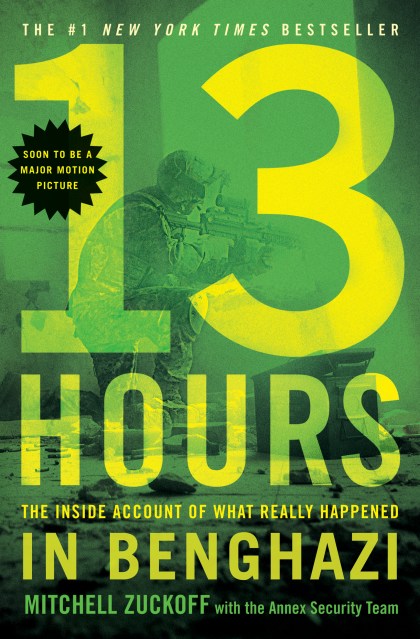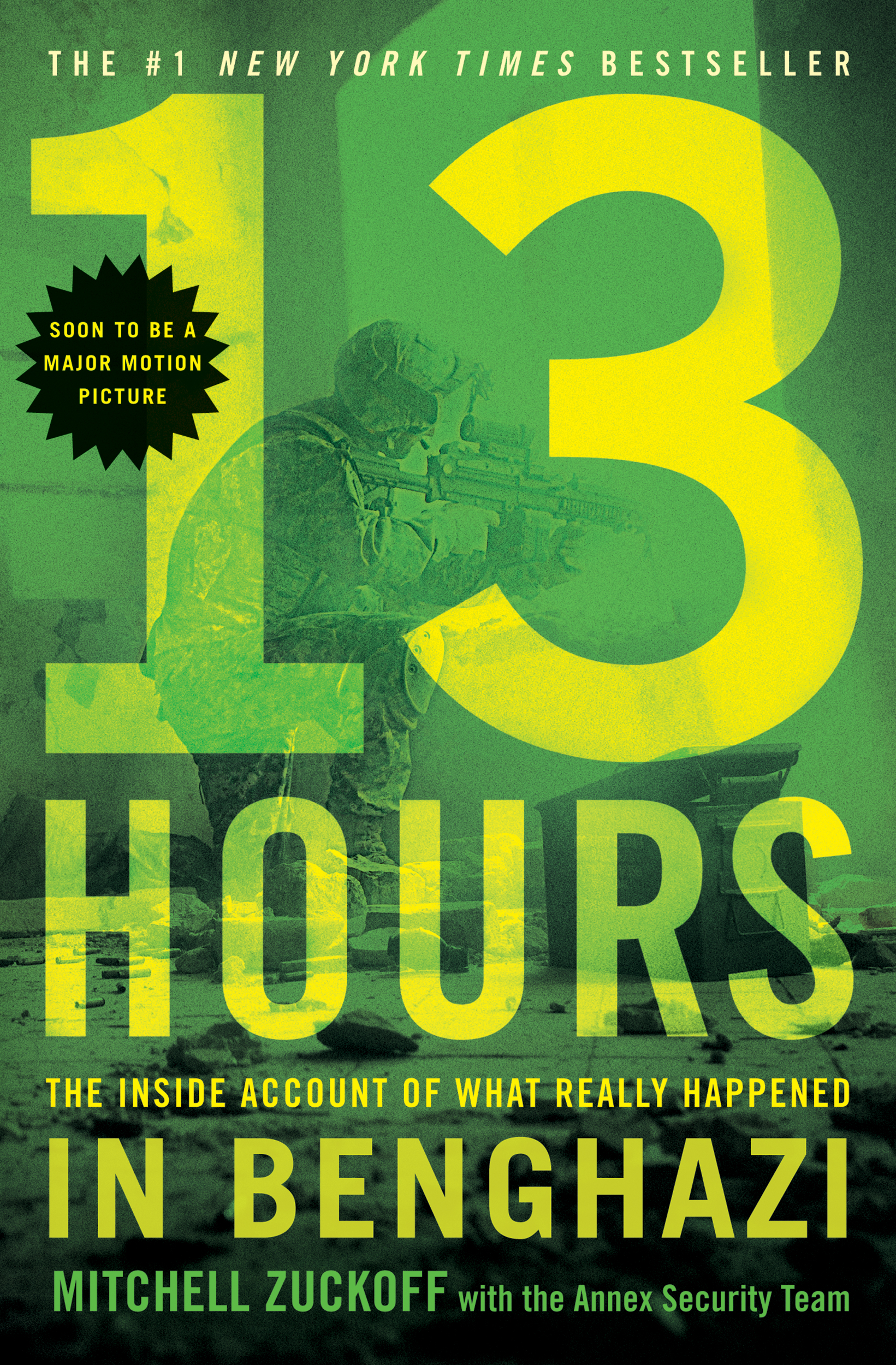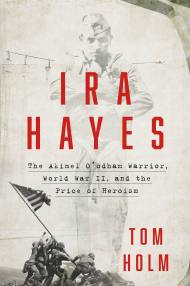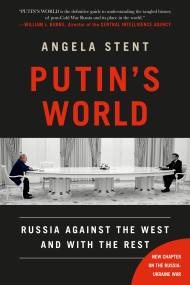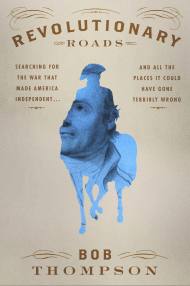By clicking “Accept,” you agree to the use of cookies and similar technologies on your device as set forth in our Cookie Policy and our Privacy Policy. Please note that certain cookies are essential for this website to function properly and do not require user consent to be deployed.
13 Hours
The Inside Account of What Really Happened In Benghazi
Contributors
With Annex Security Team
Formats and Prices
- On Sale
- Sep 9, 2014
- Page Count
- 352 pages
- Publisher
- Twelve
- ISBN-13
- 9781455582297
Prices
- Sale Price $2.99
- Regular Price $11.99
- Discount (75% off)
Prices
- Sale Price $2.99 CAD
- Regular Price $15.99 CAD
- Discount (81% off)
Format
This item is a preorder. Your payment method will be charged immediately, and the product is expected to ship on or around September 9, 2014. This date is subject to change due to shipping delays beyond our control.
Buy from Other Retailers:
The harrowing, true account from the brave men on the ground who fought back during the Battle of Benghazi — and the basis of the movie starring Jon Krasinski and directed by Michael Bay.
13 Hours presents, for the first time ever, the true account of the events of September 11, 2012, when terrorists attacked the US State Department Special Mission Compound and a nearby CIA station called the Annex in Benghazi, Libya. A team of six American security operators fought to repel the attackers and protect the Americans stationed there. Those men went beyond the call of duty, performing extraordinary acts of courage and heroism, to avert tragedy on a much larger scale. This is their personal account, never before told, of what happened during the thirteen hours of that now-infamous attack.
13 Hours sets the record straight on what happened during a night that has been shrouded in mystery and controversy. Written by New York Times bestselling author Mitchell Zuckoff, this riveting book takes readers into the action-packed story of heroes who laid their lives on the line for one another, for their countrymen, and for their country.
13 Hours is a stunning, eye-opening, and intense book–but most importantly, it is the truth. The story of what happened to these men–and what they accomplished–is unforgettable.
13 Hours presents, for the first time ever, the true account of the events of September 11, 2012, when terrorists attacked the US State Department Special Mission Compound and a nearby CIA station called the Annex in Benghazi, Libya. A team of six American security operators fought to repel the attackers and protect the Americans stationed there. Those men went beyond the call of duty, performing extraordinary acts of courage and heroism, to avert tragedy on a much larger scale. This is their personal account, never before told, of what happened during the thirteen hours of that now-infamous attack.
13 Hours sets the record straight on what happened during a night that has been shrouded in mystery and controversy. Written by New York Times bestselling author Mitchell Zuckoff, this riveting book takes readers into the action-packed story of heroes who laid their lives on the line for one another, for their countrymen, and for their country.
13 Hours is a stunning, eye-opening, and intense book–but most importantly, it is the truth. The story of what happened to these men–and what they accomplished–is unforgettable.
Genre:
-
"A minute-by-minute account of what they saw, thought and did on the night of Sept. 11-12 in Benghazi...nerve-wracking."The Washington Post
-
"A crisply written, gripping narrative of the events of the battle in Benghazi that adds considerable detail to the public record of what happened there...[an] authoritative account."The Wall Street Journal
-
"A great number of journalists and government instrumentalities have tilted at Benghazi...All of those efforts look fragmentary when placed side-by-side with 13 HOURS.'"The Washington Post
-
"13 HOURS provide(s) a moving reminder of the sacrifice made by these men who had voluntarily put themselves in harm's way, and who 'believed in their work and their country.'"The Boston Globe
-
"13 HOURS...sets the record straight for historians to ponder."-The Buffalo News
Newsletter Signup
By clicking ‘Sign Up,’ I acknowledge that I have read and agree to Hachette Book Group’s Privacy Policy and Terms of Use
